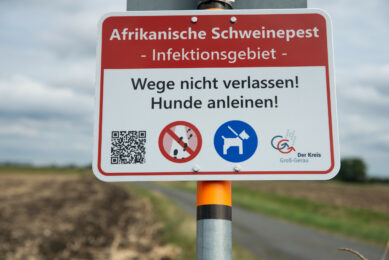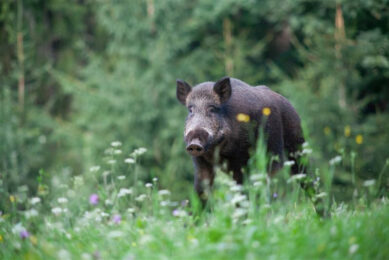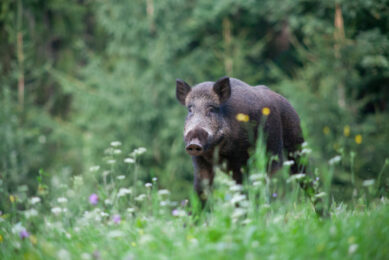Who decides what on the Pig Farm?
From a file marked ‘Labour Use’ on my client’s farms, I recently came across some statistics I have noted down on this subject across the decade of the 1990s, and indeed since then. How things seem to have changed!
From a file marked ‘Labour Use’ on my client’s farms, I recently came across some statistics I have noted down on this subject across the decade of the 1990s, and indeed since then. How things seem to have changed!
In the same way that any good agricultural salesperson should pitch his/her sales presentations to the person who signs the cheques, so a farm advisor like myself should talk to the people on the pig farm who takes the decisions. Just like the salesman, I always make a note of who these people are after I have visited a farm – useful should I return.
Here is confirmation of my past, present and future assessments – the latter two have had to be subjective, of course – of who takes the more important decisions today on the larger (2000 sows plus) and the smaller farms (mostly around 500 sows) which I have visited in Europe over the past 15 years – about 400 in total, I see from my records. If the trend I notice continues, I make a stab of what the future position could be.
(Percentages).
10 to 15 years ago
Larger (1000sows +). Smaller (200 sows or less).
Veterinarian 10 2 Vet rarely used.
Stockperson 45 23 Took a lot of decisions.
Managers/owners 45 75 Owner dominant?
Present experience.
Larger farms now Smaller farms now
Veterinarian 25 30 Growing presence on both.
Stockperson/ section heads 25 30 Section heads more involved.
Manager 50 40 Managers too pre-occupied?
In the same way that any good agricultural salesperson should pitch his/her sales presentations to the person who signs the cheques, so a farm advisor like myself should talk to the people on the pig farm who takes the decisions. Just like the salesman, I always make a note of who these people are after I have visited a farm – useful should I return.
Here is confirmation of my past, present and future assessments – the latter two have had to be subjective, of course – of who takes the more important decisions today on the larger (2000 sows plus) and the smaller farms (mostly around 500 sows) which I have visited in Europe over the past 15 years – about 400 in total, I see from my records. If the trend I notice continues, I make a stab of what the future position could be.
(Percentages).
10 to 15 years ago
Larger (1000sows +). Smaller (200 sows or less).
Veterinarian 10 2 Vet rarely used.
Stockperson 45 23 Took a lot of decisions.
Managers/owners 45 75 Owner dominant?
Present experience.
Larger farms now Smaller farms now
Veterinarian 25 30 Growing presence on both.
Stockperson/ section heads 25 30 Section heads more involved.
Manager 50 40 Managers too pre-occupied?
In 10 years time?
Larger ( 5000 sows +) Smaller (Around 500 sows?)
Veterinarian 40 40 Much greater input.
Stockperson/ section heads 20 10 Trained to follow advice.
Manager 40 50 More professional.
My guess is that the pig specialist veterinarian will play an increasingly important role (as he is doing now) but will involve himself more in measuring things, forward planning (pig flow and work flow) and management. Those of us at the sharp end of consultancy work realize how much getting these right affect disease prevention. I therefore welcome the veterinarian taking a greater part in the management of the business.
Interesting, isn’t it , that in my last 35 farm visits, mostly to the larger units, that the owner has only been present at six of them and two of these took little part in the discussions. To a certain extent I welcome this trend too, as it shows they have confidence in their managers and are letting them get on with it. As an ex-manager – hooray!
In my next blog I’d like to take this a little further and suggest – from talking and listening to some first-class managers recently – what I think makes a good manager.
Larger ( 5000 sows +) Smaller (Around 500 sows?)
Veterinarian 40 40 Much greater input.
Stockperson/ section heads 20 10 Trained to follow advice.
Manager 40 50 More professional.
My guess is that the pig specialist veterinarian will play an increasingly important role (as he is doing now) but will involve himself more in measuring things, forward planning (pig flow and work flow) and management. Those of us at the sharp end of consultancy work realize how much getting these right affect disease prevention. I therefore welcome the veterinarian taking a greater part in the management of the business.
Interesting, isn’t it , that in my last 35 farm visits, mostly to the larger units, that the owner has only been present at six of them and two of these took little part in the discussions. To a certain extent I welcome this trend too, as it shows they have confidence in their managers and are letting them get on with it. As an ex-manager – hooray!
In my next blog I’d like to take this a little further and suggest – from talking and listening to some first-class managers recently – what I think makes a good manager.











